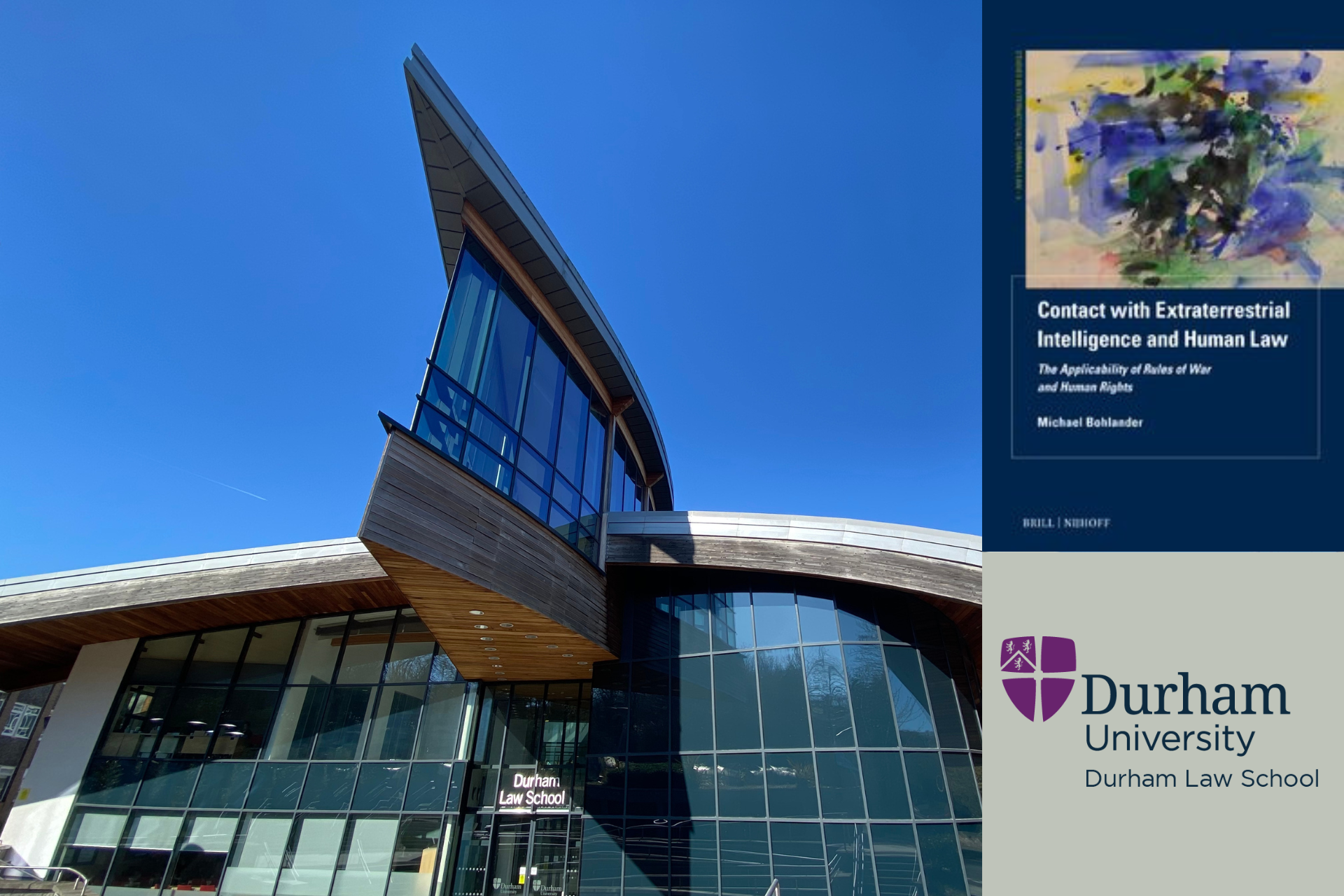Contact with Extraterrestrial Intelligence and Human Law
19 September 2023

Professor Michael Bohlander has written a new book called ‘Contact with Extraterrestrial Intelligence and Human Law - The applicability of rules of war and human rights’.
How will human law react to contact with an alien civilisation?
It is statistically unlikely that humans are the only intelligent species in the universe. Nothing about the others will be known until contact is made beyond a radio signal from space that merely tells us they existed when it was sent. That contact may occur tomorrow, in a hundred years, or never. If it does it will be a high-risk scenario for humanity. It may be peaceful or hostile. Relying on alien altruism and benign intentions is wishful thinking. We need to begin identifying as a planetary species, and develop a global consensus on how to respond in either scenario.
Asking further questions
How would Earth defend itself, if it even could, in the face of a hostile encounter with an alien civilisation? Would we extend them the same minimum civility as the interhuman laws of war dictate? Or would we reach for the ultimate indiscriminate weapon as a first choice to ensure the free survival of the human species? What would this in turn mean for our own understanding of humanitarian law? This legal conundrum applies equally to problems arising from a peaceful encounter – namely, what if the terms and conditions for joining an interstellar network of civilisations were of a nature that they would violate fundamental ethical and legal values which humans had fought for over centuries? What would we be willing to trade, for example, in order to obtain technology to solve Earth's most pressing problems?
These questions are obviously highly speculative, yet since the now openly declared official global interest in the UFO/UAP phenomenon since the early 2020s, a topic previously – like SETI as a whole – shunned by most academics for fear of reputational and career damage, establishing actual contact may no longer be the domain of astronomers, and the above questions may become relevant sooner than imagined.
Contact with Extraterrestrial Intelligence and Human Law - The applicability of rules of war and human rights is available through Brill Publishing.
Learn More
Professor Michael Bohlander is the Chair in Global Law and SETI Policy at Durham Law School. He is a member of the scientific advisory council of the Interdisciplinary Research Center for Extraterrestrial Studies in the Faculty of Mathematics and Computer Science of Würzburg University (Germany), of the UK SETI Research Network, the SETI Post-Detection Hub at St Andrews University, of the German ETI Research Network, and of the International Institute of Space Law.

